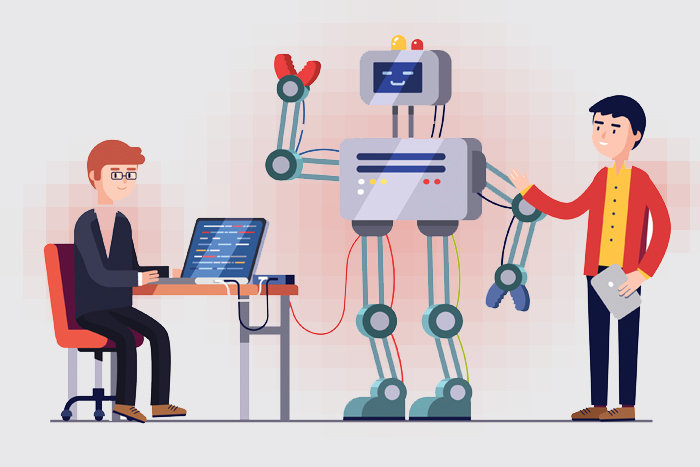Is Artificial Intelligence (AI) taking over our jobs?
Artificial intelligence (AI) and robots seem to be everywhere these days, from self-driving cars to watching recommended YouTube videos based on predictive algorithms. The age of digital revolution is happening now.
What everyone is curious, or worried about is, will AI rock our hold as leaders of this world? Exactly how much will robots affects our lives, and most importantly, what about our survival? AI is slowly taking over our basic jobs, what then, will happen in the future as big data gets more advanced?
Apollo Munich, Yes Bank, and many others are actively using AI in everyday business – thereby improving productivity and sales. For example, Yes Bank use AI platforms to do voluminous repetitive tasks and servicing customers regardless of time zones.
Artificial Intelligence in Singapore
 You might think that this is only happening in the West, and that Singapore’s jobs are disconnected from the digital revolution. However, in reality, it is already happening here. AI is slowly sinking its roots into our jobs industry and becoming integrated within our society.
You might think that this is only happening in the West, and that Singapore’s jobs are disconnected from the digital revolution. However, in reality, it is already happening here. AI is slowly sinking its roots into our jobs industry and becoming integrated within our society.
In October 2018, a Singaporean insurance firm, AIA, becomes the first in the industry to include robots among its customer-facing staffers. The two robots, Pepper and Nadine, are making history by becoming the first humanoids to take on roles in customer service as part of the team. The robots will engage with customers by responding to general enquiries about AIA Singapore and the customer service centres. Not only that, Pepper and Nadine each have their own personality, mood and emotions!
This milestone of introducing AI into the workplace also represents the nation’s very first exploration of the use of intelligent software to enhance customer experiences.
For AIA, instead of total replacement of its staffing, human employees will still play a part at the centres in case customers find it difficult to adapt to using a robot.
If successful, these service robots might fundamentally change the way customer services have been traditionally dealt with previously, that is face-to-face, to a more advanced method with the help of AI.
Varying Impacts of AI on Jobs
The impact of AI on individual sectors is set to vary, however. In the health, social work, and technical sector, a research by PwC said that the number of people employed could rise, while jobs in manufacturing could fall by roughly 25%.
According to consultancy McKinsey, as many as 700 million workers will have to find new jobs or arm themselves with a new set of skills by 2030. This does not necessarily spell doom, as automation and innovations have simply led to the creation of new jobs. The company said there will be no shortage of demand for workers but the type of jobs available will change as machines become more intelligent.
Thus, it is safe to say that we need not worry about AI completely taking over our jobs as there are still job creations and jobs that are hard to automate fully. Despite the decline in human employees in certain sectors like manufacturing, other sectors see job creations as a result of innovations and AI. In fact, we might very well be working with robots as our colleagues in the near future!




